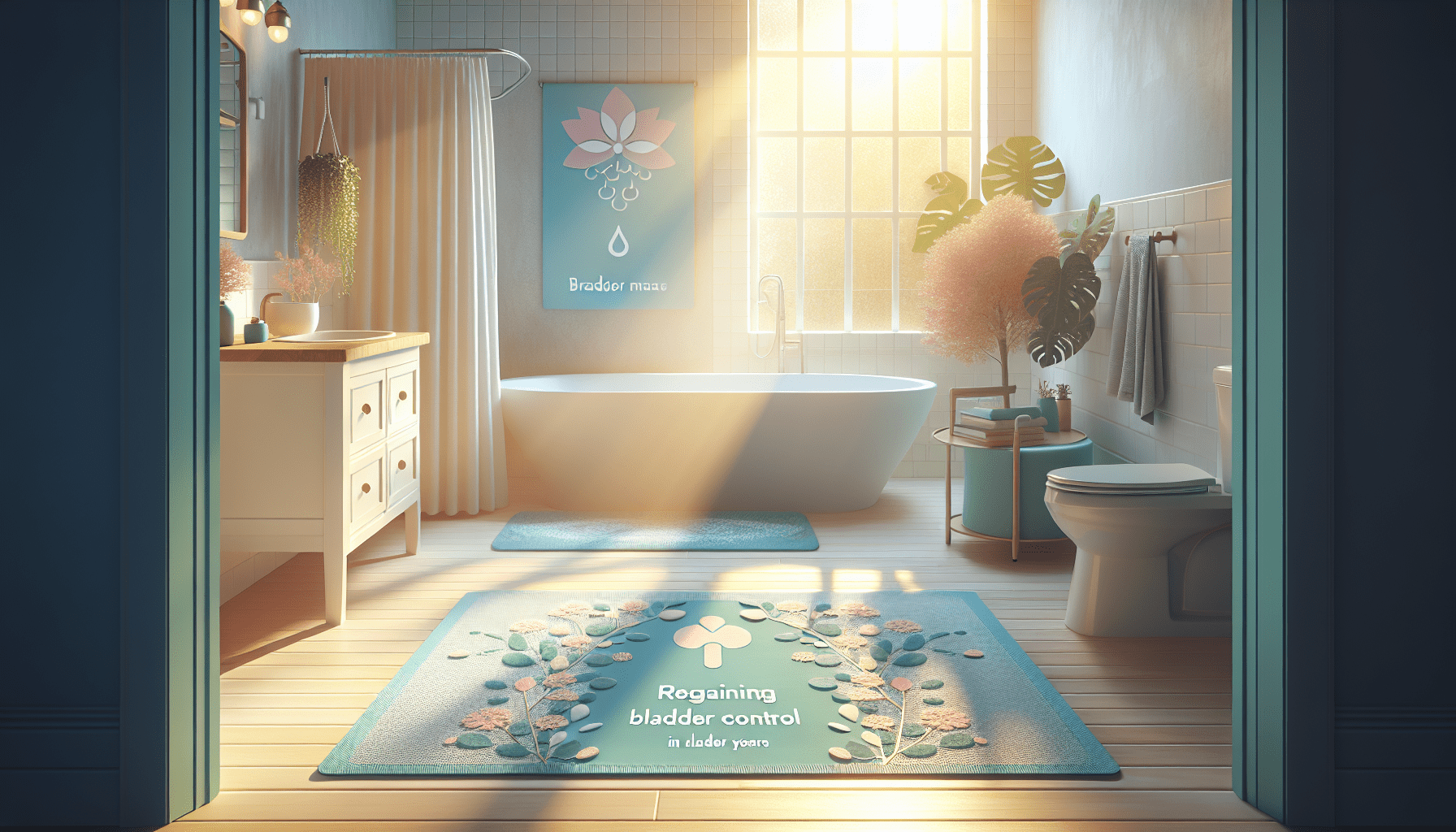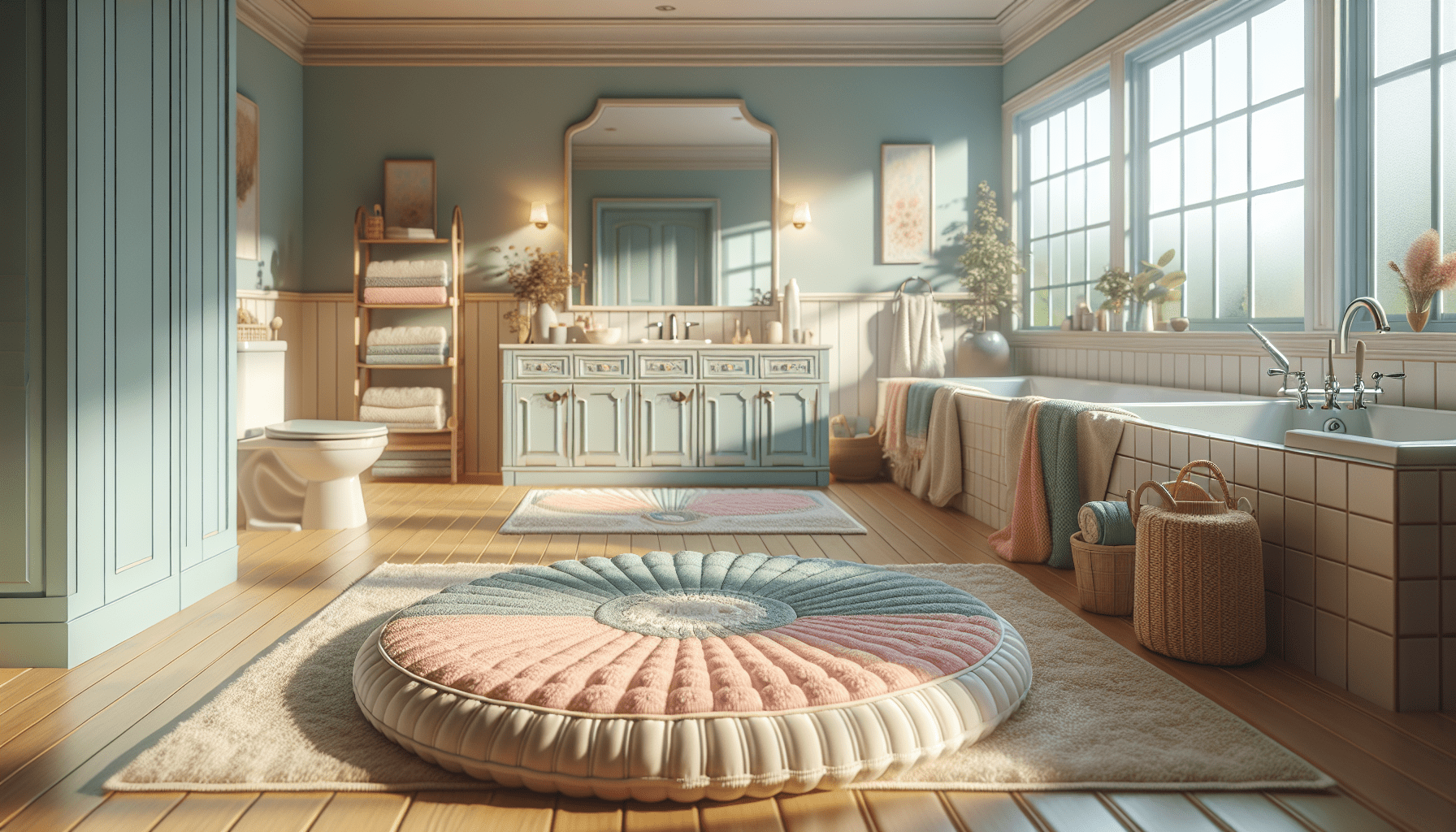Do you often find yourself concerned about bladder control? It’s a topic that, for many, feels a little too close to home, especially as you get older. Rest assured, you’re not alone. Many people share these concerns and there’s a lot you can do to restore normal bladder control in your golden years. Let’s journey together through understanding and managing bladder health.
Understanding Bladder Health: What’s Going On?
To wrap your head around bladder control, you’ll first need to understand how your bladder works. The bladder is a hollow organ in your lower abdomen that stores urine. When it functions correctly, it allows you to manage the release of the urine. Several muscles and nerves work in synchronization for this process. However, as you age, your bladder’s capacity and the nerve signals can change, leading to control issues.
Why Control Wanes With Age
It’s disheartening when things don’t work as they used to. There are various reasons why bladder control might slip with age:
- Muscle Weakness: The muscles around your bladder and pelvic floor may weaken over time.
- Nerve Damage: Conditions like diabetes or a stroke can affect the nerves that control your bladder.
- Menopause: Women may experience bladder control issues due to hormonal changes.
- Enlarged Prostate: Men might face bladder troubles due to an enlarged prostate interfering with urine flow.
Symptoms to Watch For
Not everyone experiences bladder control issues in the same way. Keep an eye out for these symptoms:
- Frequent Urination: Needing to go more often than usual.
- Urgency: A sudden, strong need to urinate.
- Leakage: Involuntary leakage when you laugh, sneeze, or exert yourself.
- Nocturia: Waking up multiple times at night to urinate.
Taking the First Steps
The first steps to restoring control involve acknowledging the problem and seeking help. Consulting with a healthcare provider can set the path for a plan tailored to your needs.

Lifestyle Modifications: Small Changes, Big Impact
Sometimes, small changes in your daily routine can bring significant improvements.
Adjusting Diet
Certain foods and drinks can irritate your bladder and exacerbate control issues. Moderation and intelligent choices make a substantial difference.
| Types | Recommendations |
|---|---|
| Fluids | Limit caffeine and alcohol; increase water intake gradually. |
| Spicy Foods | These can irritate your bladder lining. |
| Acidic Foods | Reduce citrus fruits and tomatoes. |
Keeping Active
Regular physical activity strengthens the muscles around your bladder and pelvic floor. Consider starting with gentle exercises like walking or yoga, then moving up to specific pelvic floor exercises.
Pelvic Floor Exercises: Strengthening the Foundation
At first, the idea of doing exercises to improve bladder control might sound odd, but don’t dismiss it! Pelvic floor exercises, also called Kegels, target the muscles that support your bladder.
How to Perform Kegels
- Identify Muscles: Imagine stopping your urine mid-flow. The muscles you tighten are your pelvic floor muscles.
- Get Comfortable: Start by lying down, then move to sitting or standing as you improve.
- Contract and Hold: Tighten the muscles and hold for 5 seconds, then relax for 5 seconds. Aim for 10-15 repetitions, three times a day.
The great thing about these exercises is you can do them discreetly anytime, anywhere, without special equipment.

Using Bladder Control Supplements
You might wonder about supplements and whether they can help. The simple answer is yes; specific supplements can support bladder health and improve control.
Popular Supplements and Their Benefits
| Supplement | Benefits |
|---|---|
| Pumpkin Seed Extract | Supports urinary health and reduces frequency. |
| Horsetail | Helps in reducing incontinence. |
| Magnesium | Calms bladder muscles and reduces symptoms. |
| Vitamin D | Strengthens pelvic floor muscles. |
| Corn Silk | Acts as an anti-inflammatory agent. |
When taking any supplements, always consult with your healthcare provider to ensure they suit your individual needs and condition.
Incorporating Supplements into Your Routine
Consistency is key. Create a reminder system – be it a pill organizer or a simple notepad – to track your supplement intake. Results won’t be overnight, but with regular use, many find a noticeable improvement in a few months.
Behavioral Techniques
Adjusting your behavior around urination can also help improve your bladder control.
Bladder Training
Bladder training involves extending the time between urges to urinate. Here’s a simplified plan to get you started:
- Set a Schedule: Go to the bathroom at regular intervals, say every 2-3 hours, irrespective of your urge.
- Gradual Increase: Slowly increase the intervals by 15 minutes each week.
- Stick to it: Even if you feel the urge, try to wait until your next scheduled time.
Scheduled Toileting
For those who may struggle with memory or cognition, scheduled toileting can be advantageous. Plan bathroom breaks at regular times throughout the day, and remember to encourage voiding even if the urge isn’t strong.
Medical Treatments: When to Consider Professional Help
Sometimes, lifestyle changes and exercises might not be sufficient alone. There are medical treatments available if you need an extra hand in managing bladder issues.
Medications
Several medications can help manage bladder control. Your healthcare provider can guide you on what might work best considering your personal health history.
| Medication | Function |
|---|---|
| Anticholinergics | Calm overactive bladders. |
| Beta-3 agonists | Relax the bladder muscle to increase storage. |
| Topical Estrogen | For postmenopausal women, it helps rejuvenate vaginal and urethral tissues. |
Surgical Options
In more severe cases, surgery might be considered. Options include:
- Sling Procedures: Support the urethra by lifting it.
- Bladder Neck Suspension: This helps lift and tighten the pelvic floor.
- Prolapse Surgery: If you have pelvic organ prolapse affecting your bladder, this surgery can reposition your organs.
Consult thoroughly with your healthcare provider to weigh the pros and cons before opting for surgery.
Mindful Practices: The Connection Between Mind and Body
Bladder control issues aren’t just physical and can affect mental well-being. Incorporating mindful practices can provide peace and aid in managing symptoms.
Meditation and Relaxation
Breaking the cycle of stress and anxiety related to bladder control is essential. Simple meditation or relaxation techniques can be incredibly beneficial in reducing overactive bladder symptoms.
- Practice Deep Breathing: Inhale deeply through your nose, allowing your abdomen to expand. Exhale slowly through your mouth.
- Visualize Calmness: Imagine a peaceful place and focus your mind on this imagery to reduce stress and anxiety.
- Progressive Relaxation: Starting from your toes, consciously relax each muscle group moving up to your head.
Yoga and Tai Chi
These gentler forms of exercise are not only excellent for general health but also specifically for improving bladder control. Focus on poses and movements that support and strengthen the pelvic region.
Staying Positive and Seeking Support
It’s easy to feel frustrated, but maintaining a positive outlook is an integral part of managing your health. It’s important to remember you’re taking steps in the right direction.
Building a Support Network
Talking about bladder control issues can feel embarrassing, but sharing your experiences can also be liberating. Here are a few ways to build your support network:
- Join Support Groups: Online forums or local meet-ups can offer comfort and understanding.
- Involve Loved Ones: Communicate with your close friends and family. They can offer support and encouragement.
- Professional Help: Therapists, especially those specializing in geriatric care, can offer coping strategies and emotional support.
Keeping a Journal
Track your symptoms, progress, and any triggers by keeping a bladder diary. This can offer insights and help your healthcare provider adjust your treatment plan efficiently.
| Date | Fluid Intake | Urination Times | Symptoms Noted | Triggers/Notes |
|---|---|---|---|---|
| 01/10/23 | 8 glasses water | 7:00 AM, 10:00 AM | Urgency at 9:30 AM | Drank coffee at 8 AM |
Embracing a Comprehensive Approach
Restoring bladder control in your golden years isn’t just about one solution—it’s about a comprehensive approach encompassing lifestyle changes, exercises, medical treatments, and mindful practices. Everyone is different, and it might take some time to find the perfect balance for you.
Patience and Persistence
Combining patience with persistence is your strongest ally. Changes don’t happen overnight, and setbacks might occur. Each small step forward contributes to overall improvement. Celebrate the little victories, be it holding longer before needing to go or having a more restful night’s sleep.
Holistic View
Consider your bladder health as one aspect of your broader well-being. Physical, emotional, and mental health is interconnected. By addressing bladder issues, you’re also nurturing your overall self.
Final Thoughts: Your New Path to Freedom
Embarking on this path of restoring bladder control is empowering. The steps you take today protect your future. Whether incorporating lifestyle changes, exercises, mindful practices, or seeking medical interventions, you are in control of reclaiming your bladder health.
Remember, you’ve got the tools, knowledge, and support to enjoy your golden years with confidence, free from the worry of bladder control issues. So, take a deep breath, and let’s move forward toward your new path to freedom and peace.





